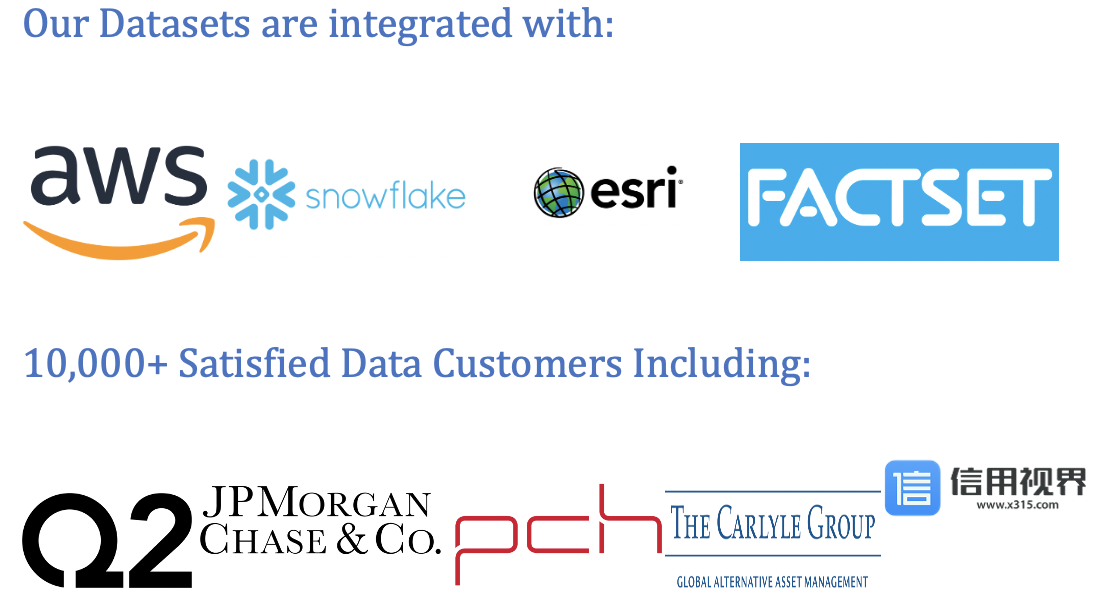
Top Walmart Data Providers
Understanding Walmart Data
Walmart Data comprises a rich tapestry of information generated through the everyday activities of Walmart stores, online platforms, distribution centers, and corporate operations. It includes sales data capturing product purchases, pricing information, and transactional details, as well as operational data tracking inventory levels, supply chain logistics, and workforce management. Additionally, Walmart collects customer data through loyalty programs, online interactions, and in-store surveys, enabling personalized marketing strategies and customer relationship management initiatives.
Components of Walmart Data
Key components of Walmart Data include:
- Sales Transactions: Records of product sales, including item descriptions, quantities sold, prices, discounts, and payment methods, providing insights into consumer purchasing behavior and sales trends.
- Inventory Management: Data on inventory levels, stock movements, and product availability across Walmart stores and distribution centers, supporting demand forecasting, replenishment planning, and supply chain optimization efforts.
- Customer Analytics: Information about customer demographics, preferences, shopping habits, and loyalty behaviors, facilitating targeted marketing campaigns, personalized promotions, and customer retention strategies.
- Operational Metrics: Performance metrics related to store operations, such as store traffic, checkout times, employee productivity, and merchandise assortment, enabling operational efficiency improvements and cost optimization initiatives.
Top Walmart Data Providers
- Leadniaga : Leadniaga offers advanced data analytics solutions for retail businesses, providing Walmart Data analytics tools and platforms for sales forecasting, inventory optimization, and customer segmentation. Their platform integrates with Walmart's data infrastructure to extract, transform, and analyze retail data for actionable insights and decision-making.
- NielsenIQ: NielsenIQ provides retail measurement and consumer insights services, including market research, sales tracking, and shopper analytics solutions for Walmart and other retailers. Their data and analytics offerings help suppliers and manufacturers understand market dynamics, competitive landscapes, and consumer preferences in the retail industry.
- Kantar: Kantar offers retail analytics and consulting services, helping Walmart and other retailers drive growth through data-driven strategies and actionable insights. Their retail data platforms provide market intelligence, shopper behavior analysis, and category management solutions to support retail decision-making and performance improvement.
- IQVIA: IQVIA delivers healthcare and retail data analytics solutions, including pharmaceutical sales tracking, market research, and consumer behavior analysis for Walmart's pharmacy and healthcare business units. Their data-driven insights help healthcare providers, manufacturers, and retailers optimize their operations and improve patient outcomes.
Importance of Walmart Data
Walmart Data is crucial for retail businesses and suppliers for the following reasons:
- Business Intelligence: Provides insights into consumer preferences, market trends, and competitive dynamics, enabling retailers to make informed decisions about product assortment, pricing strategies, and marketing campaigns.
- Supply Chain Optimization: Supports demand forecasting, inventory management, and logistics planning efforts, helping retailers streamline their supply chains, reduce costs, and improve product availability and delivery efficiency.
- Customer Experience: Enhances the shopping experience for customers through personalized promotions, targeted recommendations, and seamless omnichannel experiences, fostering customer loyalty and satisfaction.
Applications of Walmart Data
The applications of Walmart Data include:
- Merchandising: Guides merchandising decisions, such as product selection, pricing, and promotion strategies, based on sales performance, market trends, and customer preferences.
- Marketing Campaigns: Informs marketing initiatives, including advertising campaigns, email marketing, and social media promotions, by identifying target audiences, optimizing messaging, and measuring campaign effectiveness.
- Operational Efficiency: Drives operational improvements in store operations, supply chain management, and workforce optimization through data-driven insights and performance metrics.
Conclusion
In conclusion, Walmart Data serves as a valuable resource for understanding consumer behavior, optimizing retail operations, and driving business growth in the competitive retail industry. With top providers like Leadniaga and others offering advanced data analytics solutions, retailers can leverage Walmart Data to gain actionable insights, enhance operational efficiency, and deliver superior customer experiences. By harnessing the power of Walmart Data effectively, businesses can stay ahead of market trends, capitalize on opportunities, and build a stronger presence in the retail marketplace.
Our Datasets are integrated with :



10,000+ Satisfied Data Customers including :








